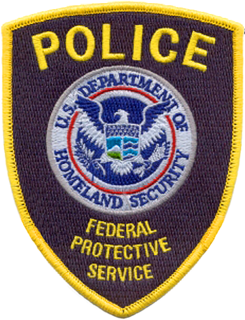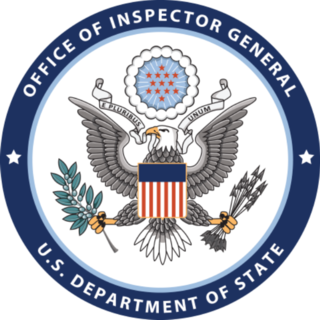External links
| | This United States law enforcement agency article is a stub. You can help Wikipedia by expanding it. |
Law Enforcement Availability Pay (LEAP) is, per the United States Office of Personnel Management, a type of premium pay that is paid to Federal law enforcement officers who are classified as GS-1811 or FP-2501, criminal investigator or special agent. Due to the nature of their work, criminal investigators are required to work, or be available to work, substantial amounts of "unscheduled duty." Availability pay is generally an entitlement that an agency must provide if the required conditions are met, but is optional in any agency's Office of the Inspector General that may employ fewer than five criminal investigators.
The following agencies are covered under LEAP:
| | This United States law enforcement agency article is a stub. You can help Wikipedia by expanding it. |

The United States Marshals Service (USMS) is a federal law enforcement agency in the United States. The USMS is a bureau within the U.S. Department of Justice, operating under the direction of the Attorney General, but serves as the enforcement arm of the United States federal courts to ensure the effective operation of the judiciary and integrity of the Constitution. It is the oldest U.S. federal law enforcement agency, created by the Judiciary Act of 1789 during the presidency of George Washington as the "Office of the United States Marshal". The USMS as it stands today was established in 1969 to provide guidance and assistance to U.S. Marshals throughout the federal judicial districts.
The U.S. Immigration and Customs Enforcement (ICE) is a federal law enforcement agency under the U.S. Department of Homeland Security. ICE's stated mission is to protect the United States from the cross-border crime and illegal immigration that threaten national security and public safety.

The Bureau of Alcohol, Tobacco, Firearms and Explosives (ATF) is a federal law enforcement organization within the United States Department of Justice. Its responsibilities include the investigation and prevention of federal offenses involving the unlawful use, manufacture, and possession of firearms and explosives; acts of arson and bombings; and illegal trafficking and tax evasion of alcohol and tobacco products. The ATF also regulates via licensing the sale, possession, and transportation of firearms, ammunition, and explosives in interstate commerce. Many of the ATF's activities are carried out in conjunction with task forces made up of state and local law enforcement officers, such as Project Safe Neighborhoods. The ATF operates a unique fire research laboratory in Beltsville, Maryland, where full-scale mock-ups of criminal arson can be reconstructed. The agency is led by Regina Lombardo, Acting Director, and Ronald B. Turk, Acting Deputy Director. The ATF has 5,101 employees and an annual budget of $1.274 billion (2019).
A special agent is an investigator or detective for a governmental or independent agency, who primarily serves in criminal investigatory positions. Additionally, many federal and state "special agents" operate in "criminal intelligence" based roles as well. Within the U.S. federal law enforcement system, dozens of federal agencies employ federal law enforcement officers, each with different criteria pertaining to the use of the titles Special Agent and Agent.

The Federal Air Marshal Service (FAMS) is a United States federal law enforcement agency under the supervision of the Transportation Security Administration (TSA) of the United States Department of Homeland Security (DHS).
In the United States, Office of Inspector General (OIG) is a generic term for the oversight division of a federal or state agency aimed at preventing inefficient or unlawful operations within their parent agency. Such offices are attached to many federal executive departments, independent federal agencies, as well as state and local governments. Each office includes an inspector general and employees charged with identifying, auditing, and investigating fraud, waste, abuse, embezzlement and mismanagement of any kind within the executive department.

The Federal Protective Service (FPS) is the uniformed security police division of the United States Department of Homeland Security (DHS). FPS is "the federal agency charged with protecting and delivering integrated law enforcement and security services to facilities owned or leased by the General Services Administration (GSA)"—over 9,000 buildings—and their occupants.

The Federal Law Enforcement Training Centers (FLETC) serves as an interagency law enforcement training body for 105 United States government federal law enforcement agencies. The stated mission of FLETC is to "...train those who protect our homeland". It also provides training to state, local, campus, tribal, and international law enforcement agencies. Through the Rural Policing Institute (RPI) and the Office of State and Local Training, it provides tuition-free and low-cost training to state, local, campus and tribal law enforcement agencies.

The United States Postal Inspection Service (USPIS), or the Postal Inspectors, is the law enforcement arm of the United States Postal Service. It supports and protects the U.S. Postal Service, its employees, infrastructure, and customers by enforcing the laws that defend the nation's mail system from illegal or dangerous use. Its jurisdiction covers any "crimes that may adversely affect or fraudulently use the U.S. Mail, the postal system or postal employees." With roots going back to the late 18th century, the USPIS is the oldest continually operating federal law enforcement agency.
A law enforcement officer (LEO), or peace officer in North American English, is a public-sector employee whose duties primarily involve the enforcement of laws. The phrase can include police officers, prosecutors municipal law enforcement officers, special police officers, customs officers, state troopers, special agents, secret agents, special investigators, border patrol officers, immigration officers, court officers, probation officers, parole officers, arson investigators, auxiliary officers, game wardens, sheriffs, constables, corrections, marshals, deputies, detention officers, correction officers, sworn campus police officers and public safety officers. Security guards are civilians and therefore not law enforcement officers, unless they have been granted powers to enforce particular laws, such as those accredited under a community safety accreditation scheme such as a security police officer.

The Office of Inspector General for the Department of State (OIG) is an independent office within the U.S. Department of State with a primary responsibility to prevent and detect waste, fraud, abuse, and mismanagement. OIG inspects more than 270 embassies, diplomatic posts, and international broadcasting installations throughout the world to determine whether policy goals are being achieved and whether the interests of the United States are being represented and advanced effectively.

Internal Revenue Service, Criminal Investigation (IRS-CI) is the United States' federal law enforcement agency responsible for investigating potential criminal violations of the U.S. Internal Revenue Code and related financial crimes, such as money laundering, currency violations, tax-related identity theft fraud, and terrorist financing that adversely affect tax administration. While other federal agencies also have investigative jurisdiction for money laundering and some Bank Secrecy Act violations, IRS-CI is the only federal agency that can investigate potential criminal violations of the Internal Revenue Code, in a manner intended to foster confidence in the tax system and deter violations of tax law. Criminal Investigation is a division of the Internal Revenue Service, which in turn is a bureau within the United States Department of the Treasury.

The federal government of the United States empowers a wide range of law enforcement agencies to maintain law and public order related to matters affecting the country as a whole.
Law enforcement in New York City is carried out by numerous law enforcement agencies. New York City has the highest concentration of law enforcement agencies in the United States.
The District of Columbia Police Coordination Amendment Act of 2001 is an amendment to the National Capital Revitalization and Self-Government Improvement Act of 1997. It was enacted on January 8, 2002. This act was created to fund and increase coordination between law enforcement agencies in the Washington Metropolitan Area.

The Office of Inspector General (OIG) for the United States Department of Health and Human Services (HHS) is charged with identifying and combating waste, fraud, and abuse in the HHS’s more than 300 programs, including Medicare and programs conducted by agencies within HHS, such as the Food and Drug Administration, the Centers for Disease Control and Prevention, and the National Institutes of Health.

The TSA Office of Inspection Accountability Act of 2014 is a bill that would direct the Inspector General of the Department of Homeland Security (DHS) to review the data and methods that the Transportation Security Administration (TSA) uses to classify personnel as law enforcement officers and to reclassify, as necessary, any staff of the Office of Inspection that are currently misclassified according to the results of that review. The TSA would be required to adhere to existing federal law about what positions are classified as criminal investigators, a fact that determines pay and benefits.